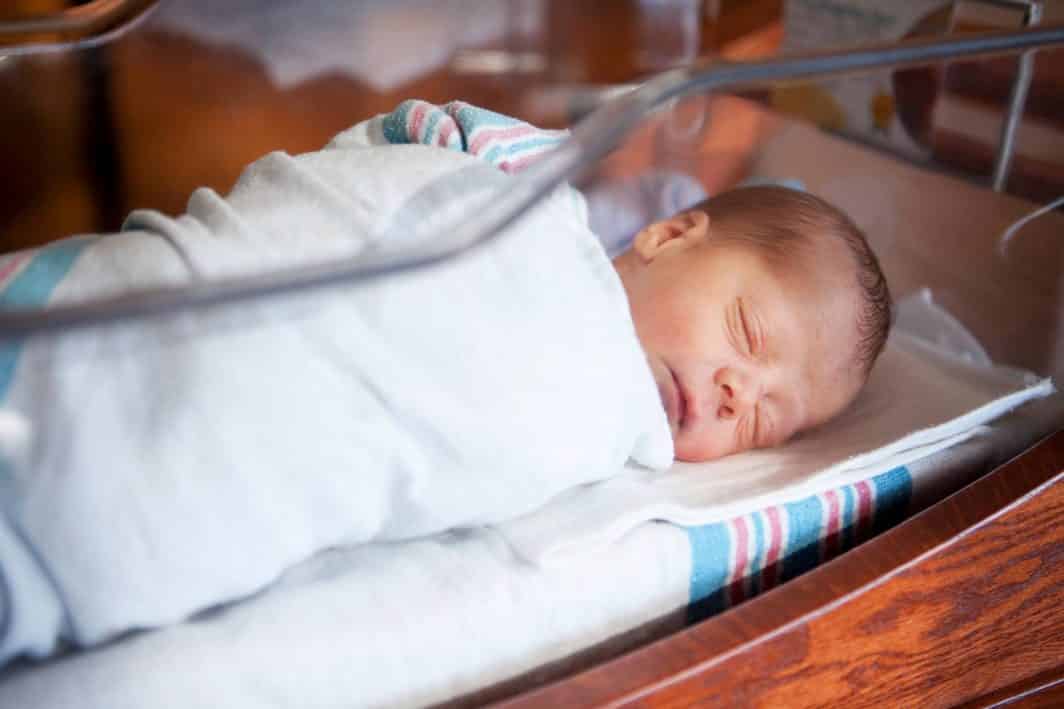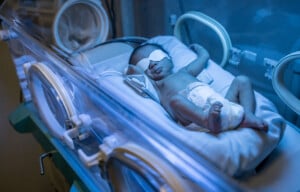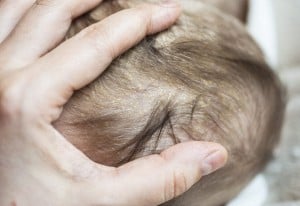You have probably planned and prepared for what labor and pushing will be like, or maybe even a c-section for your birth. But not many people think about what they may expect once their little one comes into the world. Usually, it’s a whirlwind of different tests, procedures, tons of swaddling, practicing breastfeeding, and more. The baby’s first 24 hours of life will fly by. However, every parent should be prepared as to what to expect.
Note: Every hospital is different and has different delivery procedures and protocols. Below is what is likely to happen in a baby’s first 24 hours of life.
The First 24-Hours of Baby’s Life
If you had a vaginal birth, here’s what you can expect on your baby’s first day of life if you have a healthy baby in a hospital.
The First 5 Minutes After Birth
As soon as your child is born, the doctor will suction their mouth and nose with a bulb syringe. This will clear away any mucus and amniotic fluid in their breathing passageway. The medical staff then usually places the baby immediately on your chest (if baby is doing well). The nurses begin evaluating your baby as your doctor clamps the umbilical cord (unless you decide to do delayed cord clamping) and cuts the cord (or you have your partner cut the cord).
The evaluation the nurses are doing on the baby while they are on your chest is for the Apgar test. What is that? The Apgar test is a quick test performed on babies in the first and fifth minutes of life. The first-minute score determines how well your baby has tolerated the birthing process, and the fifth-minute score determines how well your baby is doing in the outside world.
During the evaluation, they are checking baby’s:
- Breathing effort
- Heart rate
- Muscle tone
- Grimace response or reflex irritability
- Skin color
The Apgar rating is based on a scale of 1 to 10. Each category listed above is scored 0, 1, or 2, depending on the observed condition. The higher the score, the better your baby is doing after birth. A score of 7, 8, or 9 is normal. They are scores that tell you that your baby is in good health. Out of all the births I have been to, I have only seen one baby score a 10. However, that was at a home birth. A hospital will never give your baby a 10 since almost all newborns lose 1 point for blue hands and feet, which is very common after childbirth. Usually, perfectly healthy babies are given a 9 as their score.
While delivering your placenta, your newborn will be looked at and adored by you and your loved ones in the room. And a lot of pictures will be taken. The nurses are usually helping you wipe your baby off if you choose to do that, as they are determining the Apgar scores.
Hours 1 to 3 After Birth
During the first hour of your baby’s life, many hospitals are practicing the “golden hour,” which allows babies to stay on the mother’s chest for the first hour to breastfeed and do skin-to-skin. Every 15-minutes, nurses check the baby’s vitals on mama’s chest.
Some hospitals will weigh and measure your baby during the first hour of life. They will also administer antibiotic eye ointment (erythromycin) to prevent eye infections resulting from passing through the birth canal. Your baby will also receive a vitamin K shot in the thigh to avoid clotting problems. Another vaccine they will receive is the Hepatitis B vaccine. This will be the first of three doses your baby will receive throughout their lifetime. The nurses will also put ink on their feet to record their little footprints.
Note: I recommend that partners stand where the baby is to ensure they are doing okay. Also, so your partner can take pictures of your new baby. Moreover, bring a baby book with you so you can record your baby’s footprints, too.
Once your baby’s initial tests have been completed, the nurse will swaddle your baby up in a blanket like a little burrito. They will then give the baby back to you (mom) or your partner to hold. You will have a short time together in your delivery room before transferring to your postpartum room. That usually happens at the end of the second or third hour after birth.
Recommendation: When your baby is rooting for the breast and making sucking faces, put your baby on your boob! During those first days, the more you have baby on your breast and doing skin-to-skin, the better! This helps your milk come in faster.
Hours 4 to 22 After Birth
At this point, you will be in your postpartum room and learning how to take care of your newborn. Your postpartum nurse will help you with a lot of the newborn care if you need guidance and help. They will help you change the first diaper, especially when your baby passes their first poop, called meconium. That one is pretty sticky!
Your nurse will also teach you how to swaddle your baby, how to care for the umbilical-cord stump, how to breastfeed or bottle-feed (whichever you choose) your baby, and she will help you give them their first bath.
Your baby will want/need to be fed every two to three hours. Breastfeeding can be difficult, so request to see the hospital’s lactation consultant. She can ensure baby is getting a good latch and that things are getting off to a great start. Even if you think everything is going perfectly well with breastfeeding. I still recommend that you visit with the lactation consultant. Things can quickly change, and you will be so grateful to have help if they do.
Hours 23 and 24 After Birth
By the end of the first day, your baby will have been evaluated by your baby’s pediatrician or on-staff pediatrician. The doctor will look for malformations and infection risk factors and ensure that your child is feeding and breathing well. Your doctor will also check to see if your baby has jaundice.
Jaundice causes your baby’s skin and whites of the eyes to appear yellowish because of high bilirubin levels in their blood. This means that the bilirubin in your baby’s system isn’t being broken down in the liver. Babies with the condition are usually sent to receive phototherapy, a special kind of light that helps break down bilirubin.1 You’ll also be encouraged to nurse your little one frequently to help eliminate the bilirubin through their stool.
Additionally, they will prick your baby’s heel to screen for up to 50 different metabolic diseases, including sickle cell anemia and phenylketonuria (PKU). And If you have a baby boy and are planning to circumcise your son at the hospital, usually the hospital will circumcise them 24-hours after he is born. (Do your research before making this decision as well.)
So enjoy that baby of yours. Give them lots of kisses and snuggles. Cherish that first day together as a family. Consider not having visitors and just being the three of you. It goes by too quickly. Whatever you choose along the way, remember that you did it! You had your baby and finally, have your little one in your arms. 🙂





























